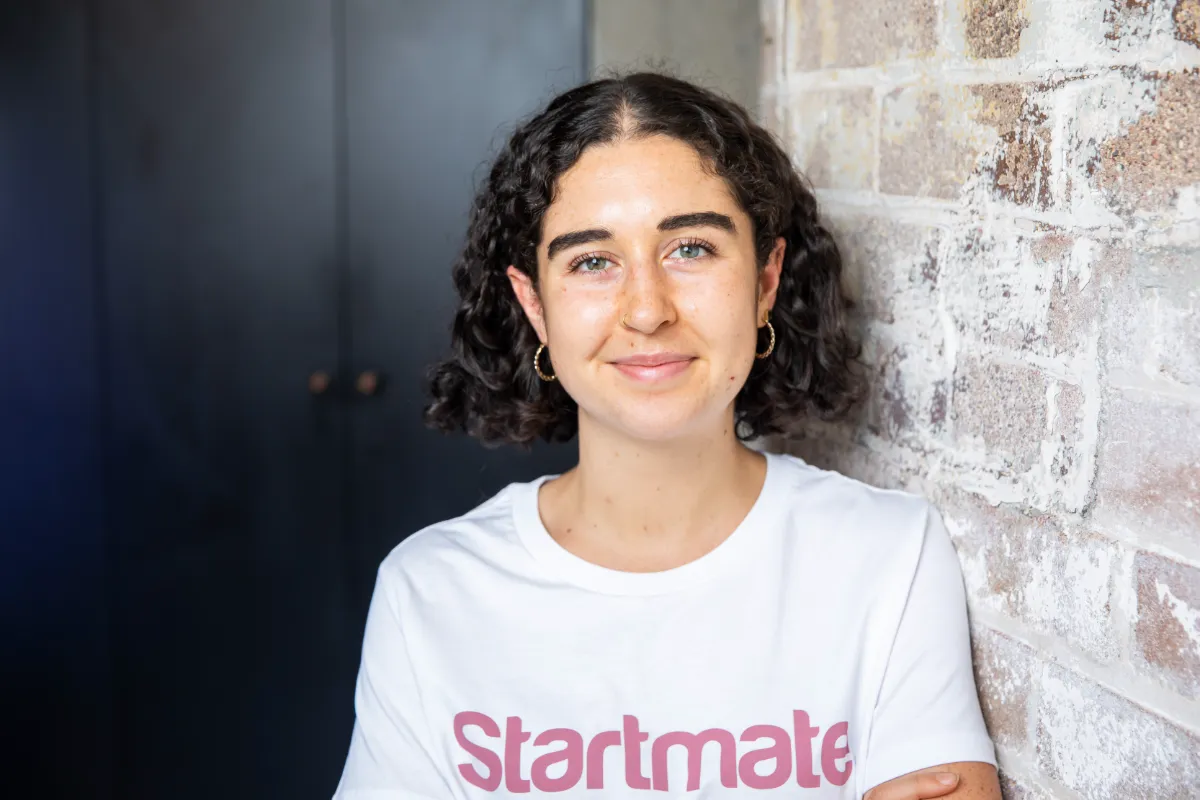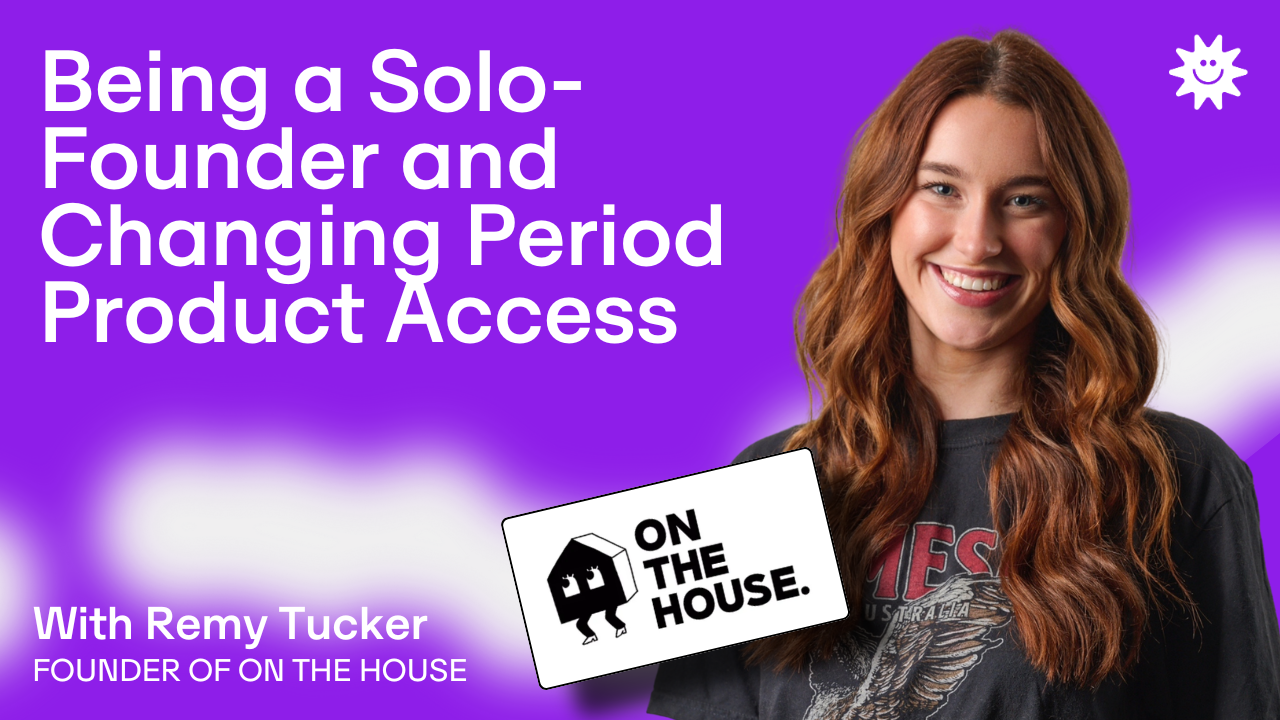‘Talent’ roles in startups aren’t hyped in the way ‘product’ or ‘operations’ roles are, but they are just as important. From ‘Talent Acquisition Manager’ through to ‘Head of Talent’ and everything in between, these operators are critically responsible for finding candidates who can truly supercharge a startup’s growth.
But what does this mean in practice? What are the day-to-day responsibilities of someone in talent acquisition? How do you break into this space?
In my pursuit of answers, I put these questions to EVP’s Head of Talent Fred Callaghan.
Tell me about your role.
I work with EVP’s portfolio of startups to support them in attracting, hiring and retaining great people. This means I spend a lot of my time directly recruiting on their behalf, as well as working with them to structure hiring processes, identifying where and how to hire, and determining what plans and frameworks they can put in place to retain people in the long-term.
It also means I work with a fairly broad array of different startups, in various industries, across the whole anatomy of the startup organisation, from sales and growth through to product and engineering.
What are your core responsibilities?
There’s no real difference between what I do and what a traditional recruiter does. My job is very much outreach, in terms of going out and meeting candidates, understanding who's doing what, who's good at what, what people are interested in doing, and how that potentially fits within our portfolio.
It’s my responsibility to understand the portfolio’s needs, work with them on identifying the talent gaps that exist within their organisations, and then match them with individuals from the talent pool in Australia and internationally.
Secondary to that, a really important part of my role is what's called talent pooling.
So rather than just going out and fitting needs for particular mandates – such as Chief of Staff or Product Manager – it's more generally being out there speaking to good people in Australia that might be interested in joining a startup in our portfolio or simply thinking about their next steps.
And then there’s the retention side of things, whether it's helping our portfolio companies with onboarding and offboarding programs, retention strategies or compensation.
What skills do you need to succeed in your role?
You've got to be comfortable with people. That's a given. You need to be able to speak to and deal with people that you've never met.
Another big one is intellectual curiosity. This is a bit of a catch-all term, but what I mean is wanting to learn more and more about people and what they're doing in different areas.
There's such a diverse range of positions and roles in startups, so it means wanting to understand what a product manager does, what a BDR does, and how these roles differ from one SaaS business to another startup that's focused in edtech.
It’s having the desire to learn more about what people are up to and what different things are going on in the market.
Recruiters get trained in the art of ‘assessing’ candidates — doing things like asking open questions to understand skillsets and navigating an individual’s experience and story. This comes into play crucially when trying to ascertain which companies and roles a candidate might be suitable for, and vice versa.
More generally — and I think everyone talks about this — it's the ability to deal with ambiguity.
For talent, people are our product, and people can be mercurial. Job descriptions can get changed on the fly, candidates and hiring managers can change their mind or shift what they’re looking for, there’s no end to what can go wrong when humans are directly involved. Good recruiters roll with the punches and adapt as the situation changes.
There's a lot of variety that comes with recruitment and the ambiguity feeds into that. At times you need to be a salesperson, an account manager, a secretary, a project manager and a consultant just to close out a single process.
There’s a lot that goes into making a single hire: from first conversations helping a hiring manager to frame and formulate a role, through to finding and assessing suitable candidates, through to managing the interview process through to delivering an offer and closing the deal.
What do you love about your role? And what's something that you'd change if you could?
I genuinely can't think of anything that I would change.
I will say, I don't think anyone wants to go into recruitment. If a 13-year-old ever told me ‘I'm dreaming of becoming a recruiter when I’m older’, I would be a little bit worried. My point is that I fell into it, as most of us do. But I genuinely love it because I get to spend most of my day talking to people a lot smarter than I am about topics that are really interesting. I was born and raised in England, so 90 percent of my small-talk topics relate to the weather, but I’ve been able to have conversations about Ancient Babylonian history, the virtues of product-led growth versus sales, the state of the Australian wine market in China, and plenty of others in between.
It comes back to my point about curiosity and wanting to learn more about other people and what they're doing. That's a really great part of my job.
I am fortunate to get to partner with some really exciting startups in our portfolio which also gives me access to some amazing founders and their teams. I get to work with them to help them directly grow their companies as ultimately it’s people that make startups work.
On the flip side, it also means I get to deal with some amazing candidates. It can be easy to forget that we are dealing directly with peoples careers and have something of a duty of care to support them in making the right decision. It is corny, but there is nothing more satisfying than catching up with a candidate once they’re in a job you’ve helped them land, and having them tell you how great it’s going.
What steps did you take to land your current role at EVP?
It was the culmination of a six- or seven-month process. I moved to Australia about four years ago, and worked for a couple of boutique search firms over the years.
I was leaving my business at the end of 2020 and met with a bunch of different startups and VCs to see if there was a way to move into that space. What became clear was it was definitely an area I wanted to work in, but there wasn't the right role. So I parked that and went and worked for another boutique search firm.
Then EVP advertised for the Head of Talent position. The role matched my head-hunting skillset, and what they wanted to achieve by recruiting on behalf of the portfolio matched my desire to get into startups.
So I put together a deck as part of the application process, sent it through to the partners, went through the interviews, and they decided to hire me.
As someone who works in talent, is it a bit weird going through the recruitment process yourself?
It's always interesting having the questions that I ask candidates on a daily basis thrown back at me. However, while it feels a bit strange being on the other end, it's really fascinating to learn what screening elements other organisations use, as well as how they assess and what they look for.
How can people set themselves up for a talent role in a startup?
Well, there is currently a massive shortage of talent candidates in the market, so I don’t think they will struggle to get a job.
But generally, in terms of setting yourself up for any role, you need to understand why you want the role and how your respective skills fit. This can be a more lengthy process in terms of getting to grips with what that role actually looks like, understanding the skills, the requirements, the day-to-day responsibilities, and whether that's actually something you want to do first and foremost. You then need to look at what you’ve done in your career, and whether that matches up, and craft a story that links the two.
For talent roles specifically, this might mean considering experiences you’ve had with stakeholder management, assessing problems, working with people and dealing with ambiguity.
I would also plug talent as a great starting point for a first job in startups — you get a real cross-sectional view of how a startup is structured by helping hire across the business and tend to work directly with the key decision-makers. This makes it a fantastic way to learn what makes a startup tick.






.jpg)

